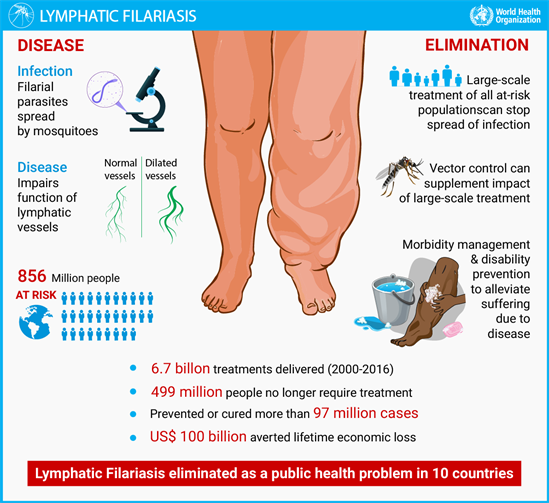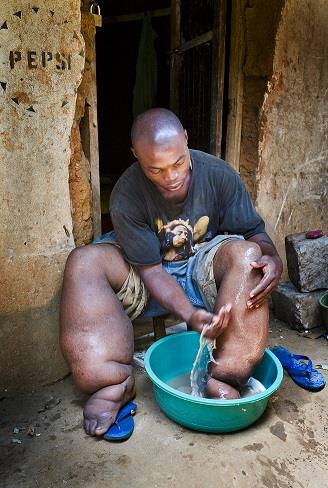Children taking part in the school MDA in Maybrat, West Papua, Indonesia. West Papua is an endemic area where the NTD programmes have yet to be fully launched.
Providing evidence-based guidance to countries for lymphatic filariasis
WHO provides Member States with evidence-based recommendations aimed to help decision making and national policy development for strategies to eliminate and control Neglected Tropical diseases. For elimination of LF as a public health problem WHO recommends stopping the spread of infection through mass drug administration (MDA) and providing an essential package of care to alleviate morbidity in persons with lymphedema and hydrocele. The latest guideline on LF concerns alternative MDA regimens, where clear recommendations on the frequency of MDA and use of the new triple-therapy regimen of ivermectin, diethylcarbamazine and albendazole are presented.
WHO convenes meetings of experts and stakeholders to a) address technical and operational challenges reported from national LF elimination programmes in endemic countries and b) review results from ongoing research and establish priorities for new research aimed at the development and application of improved strategies for achieving the elimination targets. To provide additional considerations for national policy decisions, WHO publishes summaries and conclusions of technical meetings. The latest summary report published was of a consultation on the management of urogenital manifestations of LF.
Finally, WHO publishes guides and tools to support translation of WHO recommendations into practice. These guides are intended for use by national programmes and partners to support planning, implementing, monitoring and evaluating activities to achieve elimination of LF as a public health problem.






